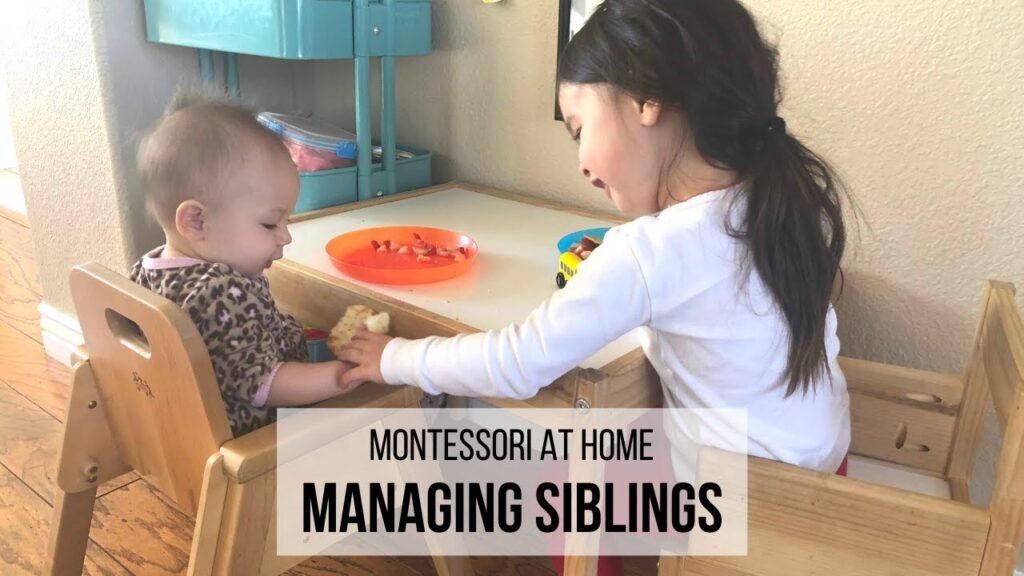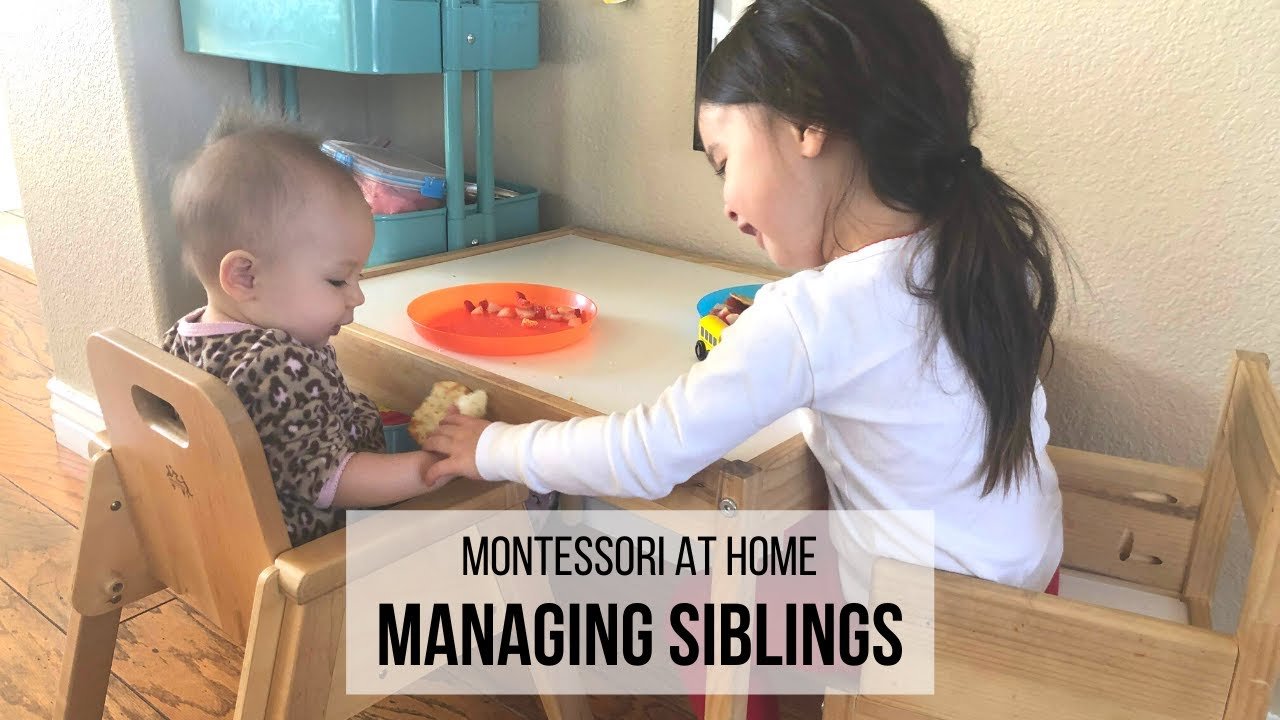Parenting can be a challenging journey, especially when it comes to managing conflicts and fostering positive relationships between siblings. In the book “Peaceful Parent, Happy Siblings” by Laura Markham, valuable techniques and strategies are shared to help parents navigate the ups and downs of sibling interactions. Through promoting empathy, preventative maintenance, and fostering communication and problem-solving skills in children, parents can create a harmonious environment where siblings can thrive together.
By setting up independent work areas for each child, curating toys and activities that encourage imaginative play and problem-solving, and creating opportunities for cooperative play, parents can empower their children to build strong sibling relationships. Through implementing positive discipline techniques and prioritizing empathy and understanding in conflicts, parents can create a nurturing environment where siblings can learn, grow, and bond with one another. Remember, effective parenting is a continuous learning process, and by staying open to new strategies and approaches, you can help your children develop into happy and well-adjusted siblings.

Importance of Managing Sibling Conflicts
Managing sibling conflicts is crucial for promoting positive relationships at home. Learning effective techniques and strategies to deal with disagreements between siblings can lead to a harmonious environment for everyone. Laura Markham’s book recommendation, “Peaceful Parent, Happy Siblings,” provides valuable insights into this area that are highly beneficial for parents facing similar challenges.
Practical tips and strategies
Practical tips and strategies outlined in Laura Markham’s book can help parents navigate sibling conflicts effectively. These include promoting empathy, establishing preventative measures, and teaching essential skills for healthy interactions among siblings.
Key concepts for promoting positive relationships
Key concepts such as empathy, problem-solving techniques, and effective communication strategies play a pivotal role in fostering positive relationships between siblings. Encouraging self-advocacy and empowering children to navigate conflicts can contribute to a supportive and harmonious sibling dynamic.
Teaching Essential Skills for Healthy Interactions
Ensuring that children develop essential skills for healthy interactions can significantly impact how they engage with their siblings. Teaching problem-solving techniques, effective communication strategies, and encouraging self-advocacy are valuable tools for promoting positive relationships in a household with siblings.
Problem-solving techniques
Teaching children problem-solving techniques equips them with the skills necessary to resolve conflicts independently. Encouraging siblings to work together to find solutions can foster collaboration and mutual understanding.
Effective communication strategies
Effective communication is key to maintaining healthy interactions between siblings. Teaching children how to express their feelings and needs respectfully can lead to clearer communication and improved conflict resolution.
Encouraging self-advocacy
Empowering children to advocate for themselves promotes autonomy and self-confidence. Encouraging siblings to assert their needs and boundaries respectfully can help prevent misunderstandings and conflicts.
Empowering Children to Reduce Conflicts
Empowering children with the tools to reduce conflicts can lead to a more harmonious sibling relationship. Teaching turn-taking, promoting sharing and trading, and helping children understand the consequences of their actions are essential steps in minimizing conflicts among siblings.
Teaching turn-taking
Encouraging children to take turns when engaging in activities can instill the value of patience and cooperation. Teaching siblings the importance of waiting their turn can help prevent disagreements and promote a sense of fairness.
Promoting sharing and trading
Promoting sharing and trading among siblings can foster a spirit of generosity and compromise. Encouraging children to share toys, snacks, or experiences with each other can create a sense of unity and teamwork.
Understanding consequences of actions
Helping children understand the consequences of their actions can promote accountability and empathy. Teaching siblings to recognize the impact of their behavior on others can lead to more considerate interactions and fewer conflicts.
Parenting Approaches in Mediating Disputes
Parenting approaches play a crucial role in mediating disputes between siblings. Remaining calm and empathetic, focusing on each child’s perspective, and encouraging respectful communication are key strategies for resolving conflicts effectively.
Remaining calm and empathetic
Maintaining a calm and empathetic demeanor when mediating sibling disputes can create a safe and supportive environment for children to express themselves. Showing understanding and compassion can help siblings feel heard and validated.
Focusing on each child’s perspective
Acknowledging and validating each child’s perspective during conflicts can promote empathy and understanding. Encouraging siblings to see situations from each other’s point of view can lead to more constructive and respectful interactions.
Encouraging respectful communication
Promoting respectful communication among siblings is essential for resolving conflicts peacefully. Teaching children to express their thoughts and emotions in a respectful manner can facilitate clearer communication and more effective problem-solving.
Privacy and Respect in Parenting Content
Respecting children’s privacy and dignity in parenting content is a fundamental aspect of maintaining trust and fostering healthy relationships. Laura Markham’s decision not to film children in difficult situations highlights the importance of prioritizing privacy and respect in family interactions.
Laura Markham’s decision not to film children in difficult situations
By choosing not to film her children in vulnerable or challenging moments, Laura Markham demonstrates a commitment to protecting their privacy and preserving their dignity. Respecting children’s boundaries and emotions in parenting content sets a positive example for promoting healthy family dynamics.
Inviting viewers to watch family vlogs for real interactions
Inviting viewers to watch authentic family vlogs provides a glimpse into real-life interactions and experiences. By sharing genuine moments of connection and growth, families can inspire others to prioritize privacy and respect in their own parenting practices.
Engagement and Community Participation
Engaging with audiences and encouraging community participation can create a supportive and interactive platform for sharing discipline suggestions and tips. Inviting viewers to share their insights and subscribing for more Montessori parenting tips can foster a sense of community and collaboration.
Encouraging audience to share discipline suggestions in comments
Encouraging audience members to share discipline suggestions and strategies in the comments section promotes an exchange of ideas and expertise. Creating an open forum for dialogue can enable parents to learn from each other and discover new approaches to managing sibling conflicts.
Inviting viewers to subscribe for more Montessori parenting tips
Inviting viewers to subscribe to the channel for weekly uploads of similar content can provide a consistent source of guidance and inspiration. Subscribing allows audiences to stay updated on the latest Montessori parenting tips and strategies for promoting positive sibling relationships.
Series Content and Channel Subscription
Being part of the Montessori at home series offers a comprehensive guide to implementing Montessori philosophies in everyday parenting practices. With weekly uploads of similar content, subscribers can access a wealth of information and resources to support their journey in raising happy and well-adjusted siblings.
Part of Montessori at home series
The video series Montessori at home provides valuable insights and strategies for parents looking to introduce Montessori principles into their daily routines. Each episode offers practical tips and techniques for nurturing positive sibling relationships in a home environment.
Weekly uploads of similar content for subscribers
By providing weekly uploads of similar content, the channel ensures that subscribers have access to a consistent source of guidance and support. Subscribing to the channel allows viewers to stay connected and engaged with the Montessori at home series, enhancing their knowledge and skills in managing sibling conflicts.
In conclusion, managing sibling conflicts is essential for promoting positive relationships and fostering healthy interactions between siblings. By implementing practical tips, teaching essential skills, and empowering children to reduce conflicts, parents can create a harmonious environment that nurtures growth and development. Engaging with the community and prioritizing privacy and respect in parenting content can further enhance the journey of raising happy and well-adjusted siblings. Subscribe to the Montessori at home series for ongoing guidance and support in navigating the challenges of sibling relationships.

